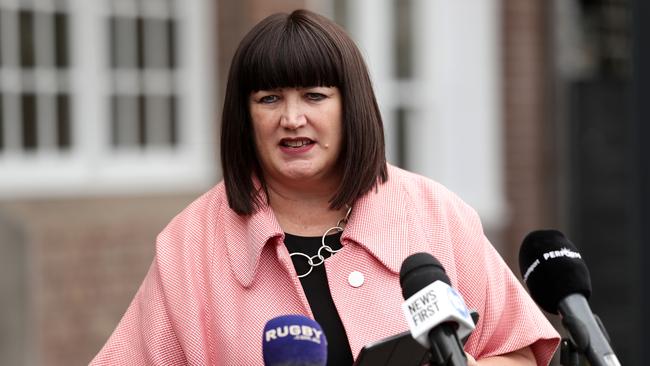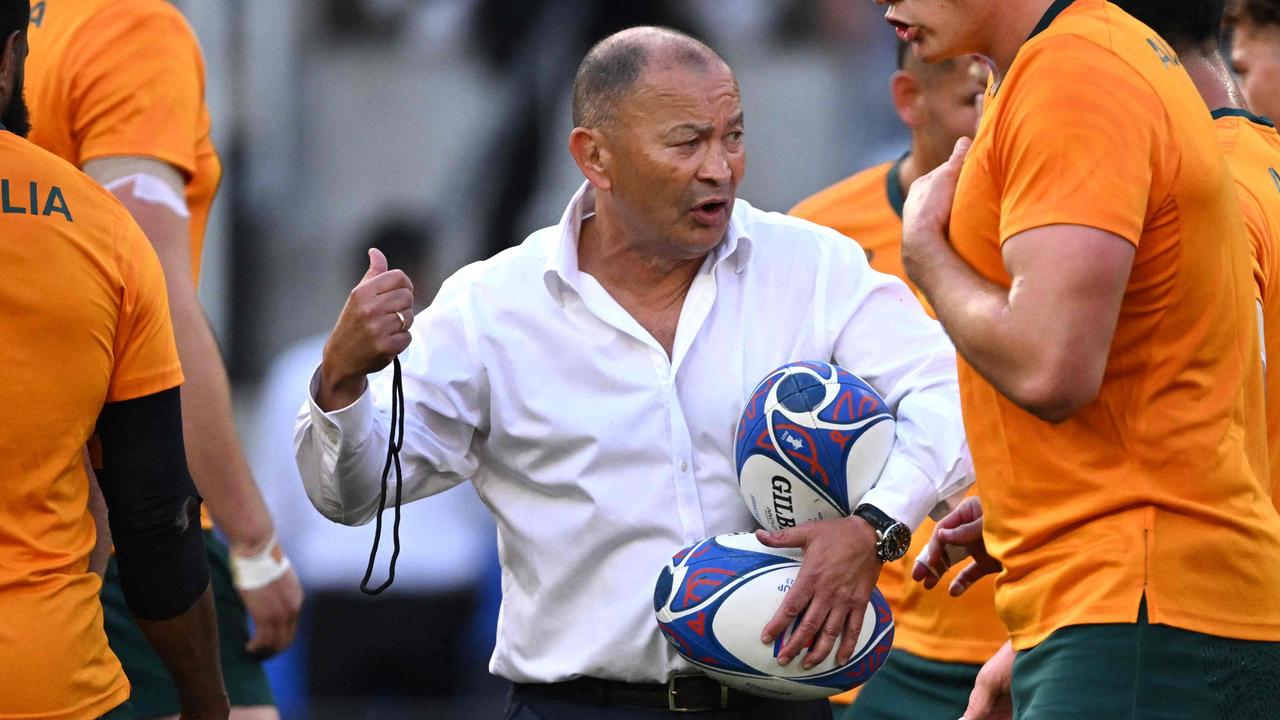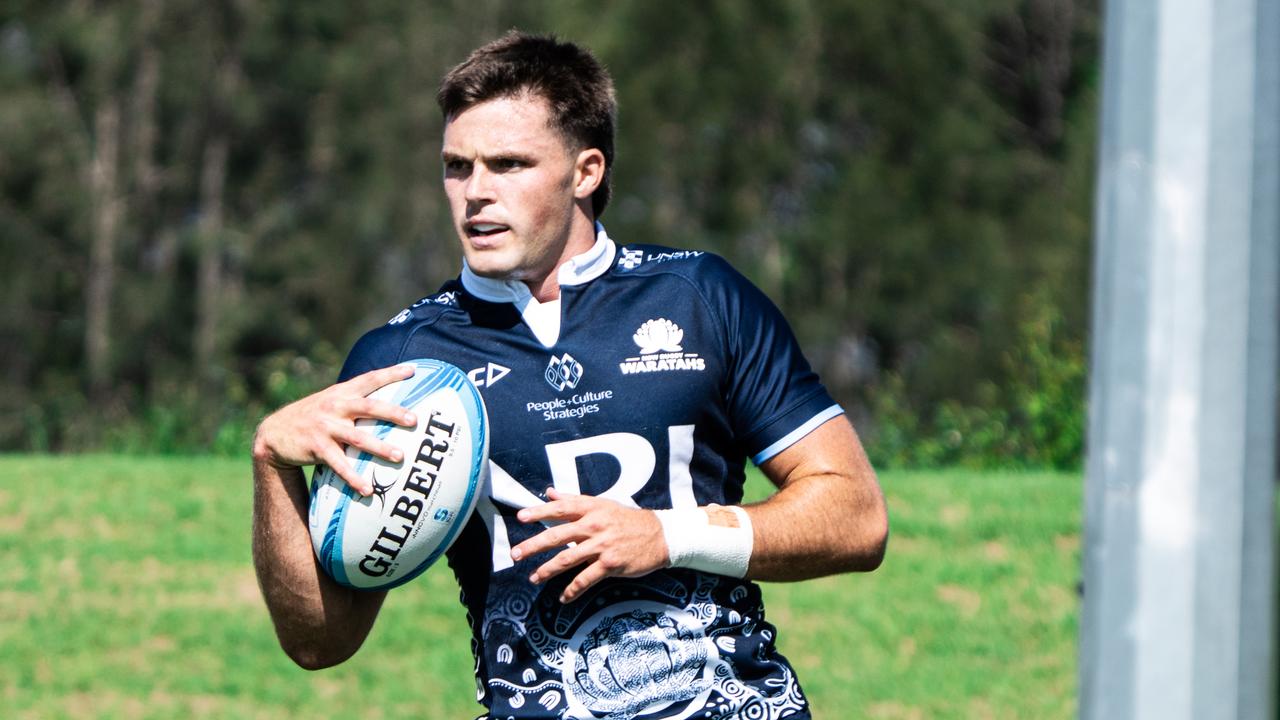Not the time to be dropping the axe on Rugby Australia chief
Rugby Australia has more important things to be worrying about than whether Raelene Castle or Phil Kearns would do a better job as CEO.

Raelene Castle’s position appears safe, at least for the moment. Of course, who is to say whether that will still be true tomorrow, given how dramatically things are changing?
But at this juncture Rugby Australia has more important things to be worrying about than whether Castle or Phil Kearns would do a better job as chief executive.
Essentially, RA has about 90 days of guaranteed survival ahead of it. After that, when the funding runs out, it has five options to consider — it declares itself insolvent and closes its doors; it turns to the federal government for assistance; it gets bailed out by World Rugby which for a long while has promised the world and not delivered; it explores the private equity line though that involves surrendering its soul or — and this is the one that potentially offers most relief — it invites wealthy individuals or companies to become private owners of rugby businesses.
That’s a lot of balls to keep in the air at the same time and, in the opinion of RA chairman Paul McLean, now is not the time to be changing the juggler.
“The next 90 days will be critical,” McLean told The Australian, and while his comments were directed at the game in general, it’s a fair bet they might also apply to Castle.
No one is suggesting Castle is yet out of the woods. Nor should she be.
It can’t be said definitively that she had messed up the broadcast deal because the coronavirus struck and threw everything up in the air. But it certainly was not looking good for her with Fox Sports — partially owned by News Corp, publisher of The Australian — having made it clear that its initial offer was its only offer. After that, an initially upbeat Optus decided it would not be entering into a bidding war with itself.
In the rear-vision mirror of history, all of these look like fatal mistakes by Castle — and so they might be. All that can be said at present is that they continue to hang confusingly in abeyance, which is not to say they won’t have to be painfully addressed sooner rather than later.
And then there was the tone-deaf response to the COVID-19 situation when Castle announced she was cutting her salary in half. Half of $800,000 is still $400,000, which is life-changing money for those in rugby with no income over the next three months. It was a bigger pay cut than any other RA executive took on and a bigger percentage cut than any announced by her counterparts in other sports, but it still did not exactly shout, “I share your pain!”
Castle gets blamed for the actions she took. See the bulging Israel Folau file. And she gets blamed for actions she most definitely didn’t take. She wanted Michael Cheika gone as Wallabies coach in late 2018 but she was overruled by her own board. Yet still this is listed as a key entry in her “Failures” column.
She is a stubborn person and at times paranoid, endlessly hunting for the source of leaks. If she continues in this vein, she will quickly lose the support of her fellow RA workers and that would be fatal for her.
There is no question that good leaders can have bad luck, just as bad leaders can have good luck. What did Napoleon say about lucky generals, after all? Castle has had rotten luck so far, and that has confused the situation. Good leader? Bad leader? What she is, however, is a fighter and heaven knows rugby needs all the scrappers it can muster at the moment.
It is a very Sydney coup, this plot to unseat her. Reminiscent in many ways of the plot to overthrow Gary Flowers as Australian Rugby Union chief executive in 2007 and replace him with John O’Neill.
Many of the behind-the-scenes figures are the same. Certainly the game plan is the same — the presentation of an attractive alternative, an insider who knows the ropes. Not O’Neill in this case, though indications are that he would accept the job under certain circumstances, but rather Phil Kearns, the dual World Cup-winning hooker.
Everyone speaks highly of Kearns but he finished second behind Castle in a less politically charged environment when the position was last advertised in 2017. Why should he now have the position of CEO laid at his feet, unchallenged? As it is, the drive to install him is seen as merely the latest edition of “Rugby 2088” — the postcode for Mosman, the unofficial rugby heartland. And in the current circumstances, it would be further overlaid with a view that it is entirely a boys’ club appointment.
Indeed, that is the one element of this that Flowers views as markedly different to the coup that eventually toppled him. “(This) is definitely gender-based,” he said. “In much the same way as Julia Gillard was toppled as Prime Minister.”
After the way Castle has been treated, there is not a hope in hell of another woman raising her hand to be CEO of RA for a long, long time. More’s the pity.
Another three months delivers us into July. According to the NRL, that’s when rugby league will resume. It does not seem too fanciful that by August border restrictions may have been relaxed enough for a domestic competition in Australia and an international series involving the Wallabies and the All Blacks.
All of this needs work.
That’s what Castle and the RA directors have been working on since the new board was formed a week ago. It has been put about that the three new board members, Daniel Herbert, Brett Godfrey and Peter Wiggs, plus longstanding member Pip Marlow, all oppose Castle’s retention. So far that is pure speculation. The board met every day last week and, yet, according to McLean, no one has even raised the issue of who the chief executive officer should be.
For the moment, shouldn’t the board of RA be more concerned with the survival of the game in this country than petty politicking?


